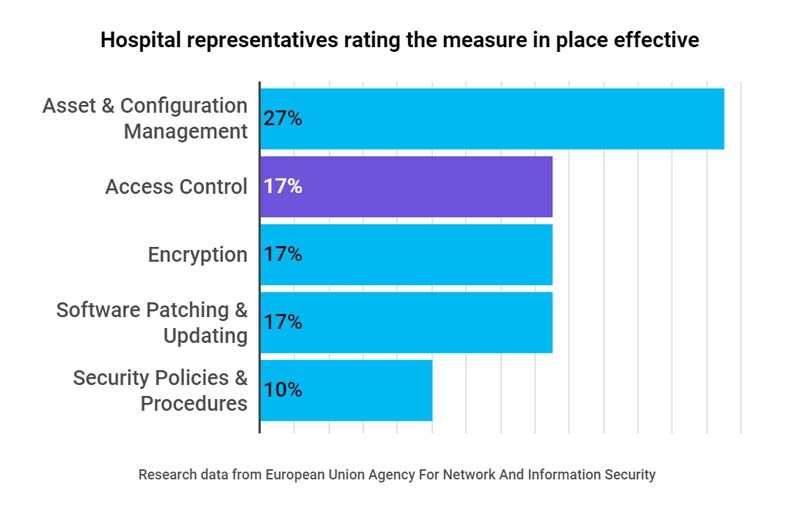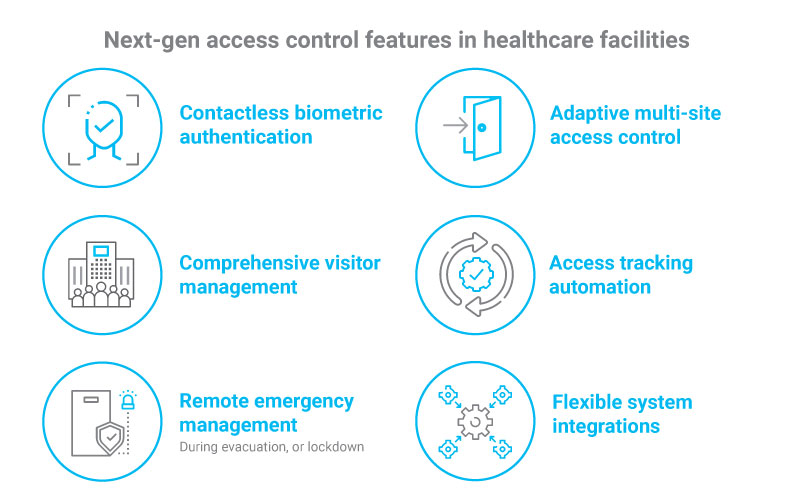written by
post on 19.05.2021
The COVID-19 situation is putting immense pressure on the healthcare sector and requires hospital authorities to prepare for the “next normal”. With high traffic of people, complex staffing, medical equipment and sensitive medical data, hospitals face increased security threats.
To ensure physical safety and information security, both organizational and technical measures can be adopted. An EU research showed that 17% of hospital representatives considered “Access Control” as an effective step to protect patients, visitors, and staff.[1] Access control is a key security element in hospitals to avoid unauthorized access to restricted and sensitive areas.

Today’s access control solutions can integrate with more systems within the healthcare sector, including human resources, payroll, contractor verification, etc. Leveraging access control technology with multiple systems can achieve incremental benefits by enhancing efficiencies and saving investment costs.
With changing security and operation needs, a next-gen access control solution enables hospitals to upgrade their systems with these features:

In healthcare facilities, a dynamic and diverse workforce requires a robust access control solution that would encourage productivity and enhance security. With pre-defined user groups, the system ensures only authorized personnel can gain access to specific areas in hospitals. For instance, medical staff is authorized to access the pharmacy while security managers have access to the control room. Comprehensive visitor management enables hospitals to effectively track who has entered the ward, check if their visit is authorized, and deny entry if necessary.
In the post-pandemic world, access control solutions could help prevent the spread of disease by effectively separating infected patients from non-infected patients.
Security measures must be taken to protect personal health information from unauthorized access. It is important to ensure only authorized personnel can grant access to information on a need-to-know basis. Multi-factor authentication can be an extra layer of security for accessing sensitive data adds.
Especially for hospital server rooms and document management systems, the installation of smart cabinet locks can extend the physical security to rack-level. When effectively implemented, access control solutions block intruders from physically accessing confidential medical data.
In a hospital and clinic environment, immediate access to medical rooms or devices can be critical. To restrict access points without compromising workflow speed, the authentication process must be efficient and accurate. Access control equipped with contactless identification can facilitate entry control for clinicians with ease.
The greatest benefits of access control systems can be achieved when integrated with other management systems. For example, automatically populate access data across the healthcare facility’s multiple systems like HR, time and attendance, and directory systems. In this way, only one point of data entry would be required for every new staff or contractor.
Access control technology is more adaptable and accessible for healthcare facilities nowadays, it is proved to be a crucial part of any comprehensive solution to ensure security and efficiency.
Reference:
[1] Cyber security and resilience for Smart Hospitals